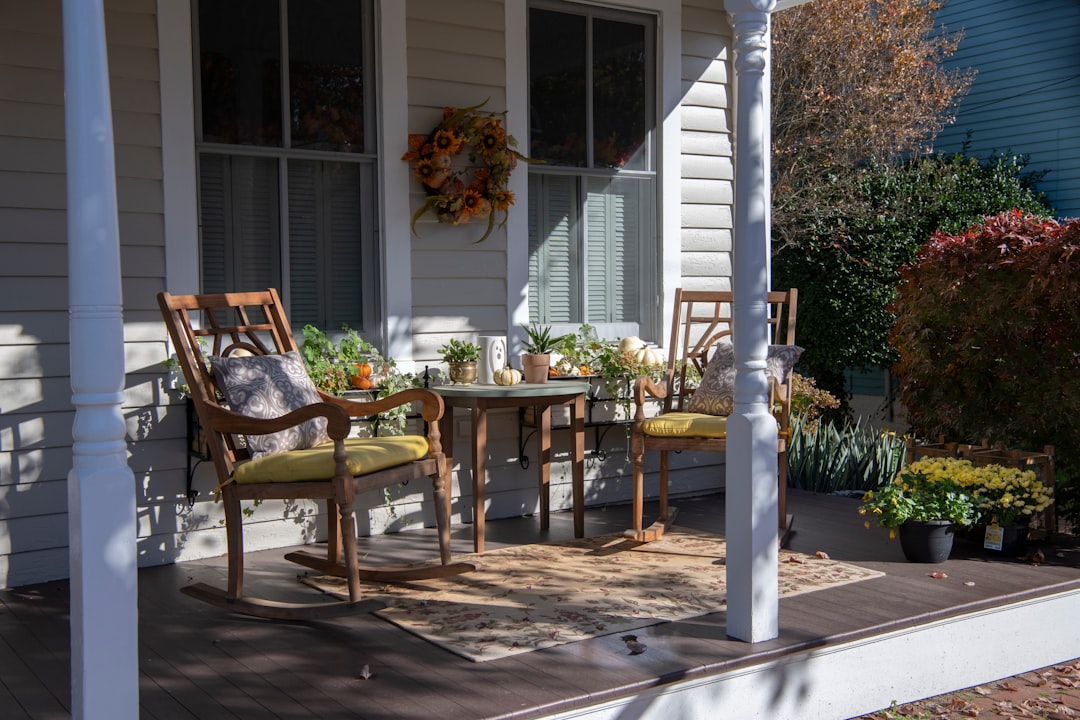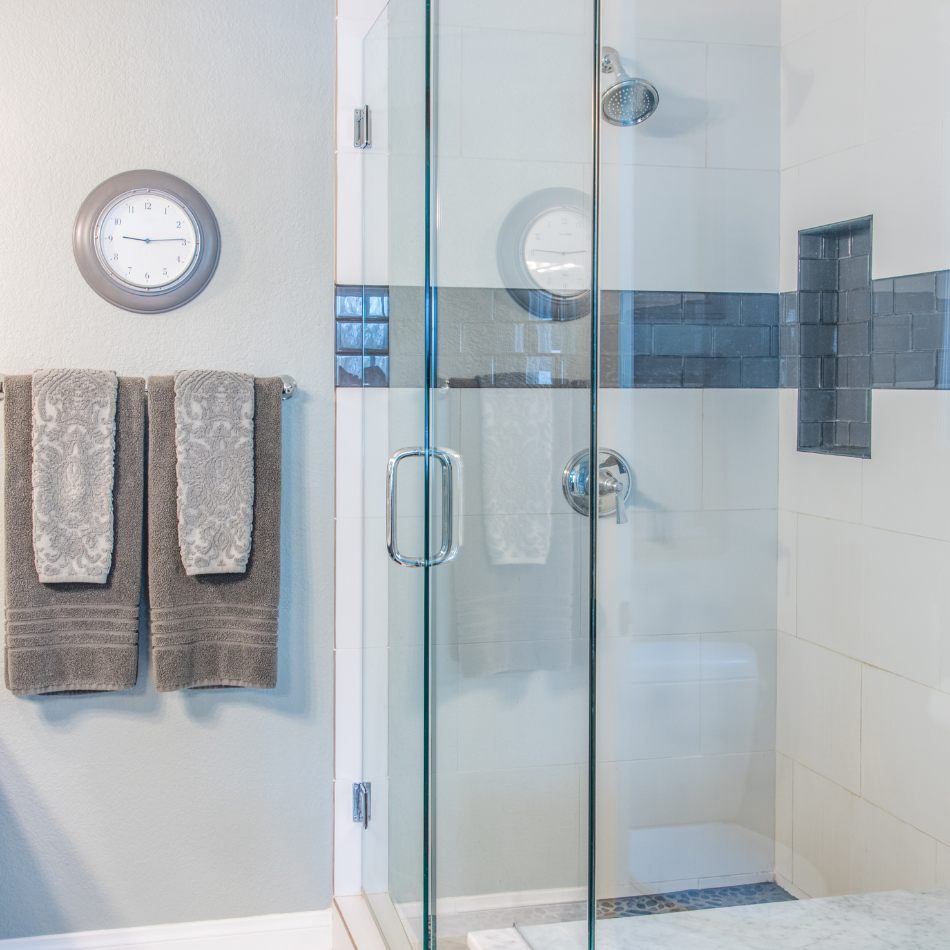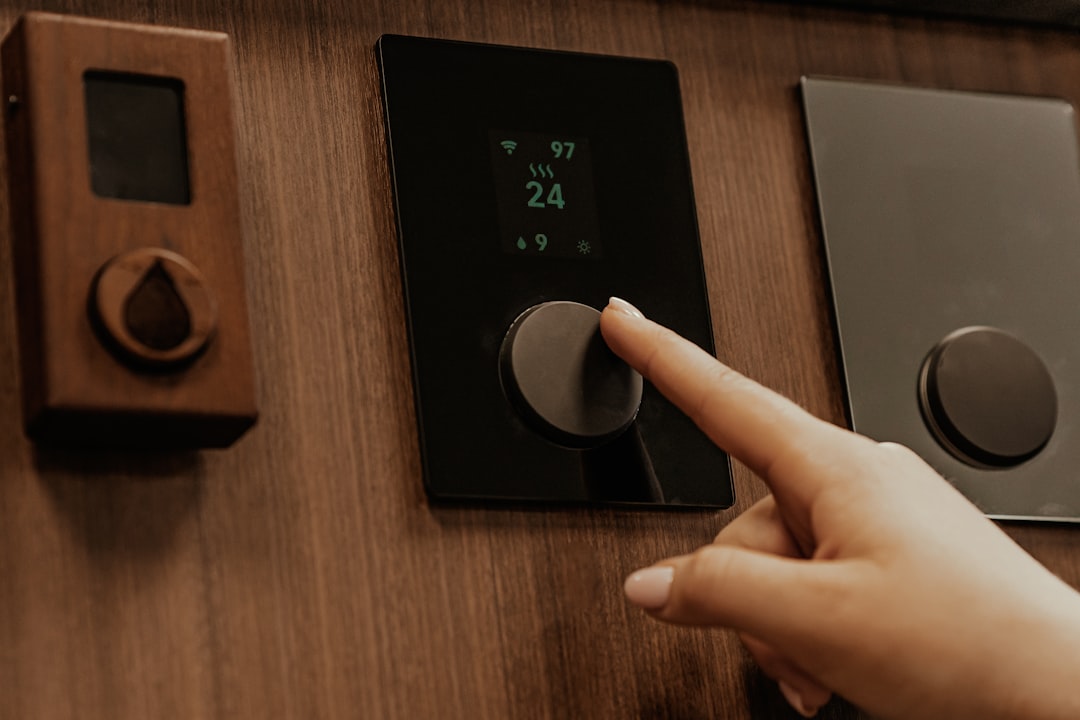Category Archives for "Southern NH homes for sale"
Southern NH
Southern NH

When buying a home, managing monthly payments is a top concern for many buyers. Seller concessions offer an easy way to save money.
In simple terms, a seller can agree to pay certain costs on behalf of the buyer. One common example is an interest rate buy-down, which lowers the buyer’s mortgage payments for a set period or even the life of the loan.
For buyers looking at South Nashua houses for sale or other Southern NH homes, understanding how seller concessions work can make purchasing more affordable and help sellers move their property faster.
Seller concessions are incentives offered by the seller to help buyers cover costs. These can include:
Closing costs
Prepaid taxes or insurance
Interest rate buy-downs
These concessions reduce the cash a buyer needs upfront and lower monthly mortgage payments. For Southern NH houses for sale, seller concessions can make a home more appealing in a competitive market.
Seller concessions can be structured in several ways. One popular method is the interest rate buy-down.
The seller pays an upfront fee to reduce the buyer’s mortgage interest rate.
Lower interest rates result in smaller monthly payments.
Buy-downs can be temporary, typically for one to three years, or permanent for the life of the loan.
This approach is particularly useful for buyers of South Nashua houses for sale who are concerned about affordability in the current market.

Seller concessions offer several advantages for buyers:
Reduced monthly mortgage payments
Lower upfront costs at closing
Easier budgeting and financial planning
By lowering monthly expenses, buyers can afford more home or save for other needs. This makes Southern NH houses for sale more attainable, especially for first-time buyers or those with tight budgets.
Sellers also gain from offering concessions. They can:
Attract more buyers in competitive markets
Help close deals faster
Make homes more appealing without lowering the sale price
When selling South Nashua homes or other Southern NH properties, strategic concessions can differentiate a listing and generate buyer interest.
Seller concessions come in many forms, each offering unique benefits:
Closing Cost Assistance
Sellers can cover part or all of the buyer’s closing costs, reducing out-of-pocket expenses.
Prepaid Expenses
Some sellers pay for taxes, insurance, or homeowners association fees.
Interest Rate Buy-Downs
The seller pays to lower the buyer’s interest rate, decreasing monthly mortgage payments.
Understanding these options helps buyers and sellers negotiate effectively.

Interest rate buy-downs are among the most effective seller concessions. They can be structured in two main ways:
Temporary Buy-Down: Reduces payments for the first few years. Often a 2-1 buy-down lowers the rate two points in the first year and one point in the second.
Permanent Buy-Down: Lowers the interest rate for the entire mortgage term.
Buyers of South Nashua houses for sale often find buy-downs helpful when rates are higher. They provide immediate savings and financial relief.
Negotiating seller concessions requires strategy:
Work with a knowledgeable REALTOR to identify opportunities.
Factor concessions into your offer without inflating the purchase price unnecessarily.
Consider current market conditions. In a seller’s market, concessions may be harder to secure.
For Southern NH houses for sale, a skilled negotiation can make concessions a win win for both buyers and sellers.
Many buyers hesitate to request seller concessions due to myths:
It lowers the home’s value: Concessions do not reduce sale price unless negotiated that way.
Only first-time buyers can use them: Experienced buyers can also benefit.
Sellers rarely agree: Concessions can be attractive in markets where buyers need financial support.
Understanding the facts ensures buyers confidently ask for these benefits.

One of the biggest advantages of seller concessions is their impact on monthly mortgage payments:
Even small buy-downs can save hundreds per month.
Lower payments increase affordability and reduce financial stress.
Buyers can invest savings into home maintenance or personal goals.
For South Nashua houses for sale, lower monthly payments often broaden the pool of potential buyers.
Lenders permit seller concessions but usually cap them at a percentage of the home’s purchase price:
Conventional loans allow up to 3% to 9%, depending on down payment.
FHA and VA loans also allow concessions with specific limits.
Knowing these rules helps buyers plan effectively and ensures compliance with lender requirements.
Seller concessions can be combined with other incentives to maximize benefits:
Home warranty coverage
Prepaid utility credits
Renovation credits
This combination enhances buyer interest while maintaining a strong selling position for Southern NH homes.
Timing matters when requesting seller concessions:
Include concessions in your initial offer or negotiate during inspection.
Buyers must ensure lender approval to avoid delays.
Sellers need to calculate costs carefully to maintain profitability.
Proper timing ensures concessions deliver maximum value to both parties.
Offering concessions is particularly useful in these situations:
Buyer budgets are tight, but they qualify for financing
Market conditions favor buyers
Home requires upgrades or repairs that can be offset by concessions
For South Nashua houses for sale, concessions can close deals that might otherwise stall.

To maximize seller concessions:
Work with an experienced REALTOR familiar with Southern NH markets
Understand your lender’s limits
Compare the impact on monthly payments for different buy-down scenarios
Prioritize concessions that reduce long-term costs
These strategies help buyers secure the most effective concessions.
Sellers can benefit by offering concessions strategically:
Highlight them in marketing to attract more buyers
Determine which concessions have the biggest appeal
Use concessions to differentiate listings without reducing sale price
For South Nashua houses for sale, this approach can shorten time on the market and improve offers.
A buyer using a 2-1 interest rate buy-down saves $200 monthly, making a home in Southern NH more affordable.
A seller covers $5,000 in closing costs, allowing the buyer to move in with minimal cash.
Combining a buy-down with a home warranty creates a smooth, worry free experience for buyers and sellers.
These examples show how seller concessions benefit all parties.
While useful, concessions have considerations:
Avoid requesting excessive concessions that may reduce seller interest
Ensure proper lender approval to avoid delays
Factor concessions into your total financial plan
Understanding risks helps buyers and sellers use concessions effectively.
Seller concessions are a powerful tool to make homeownership more affordable and attractive.
They lower monthly mortgage payments through interest rate buy-downs
Help buyers manage upfront costs
Make South Nashua houses for sale and Southern NH homes more appealing
For both buyers and sellers, understanding and using concessions strategically can result in faster sales, happier buyers, and smoother transactions.
If you are exploring Southern NH homes or selling South Nashua houses for sale, talk to your REALTOR about how seller concessions can benefit your next transaction.

If you need more information on how seller concessions can hlep you purchase or sell a home, or are ready to sell your house give us a call at (603) 883-8840. You can also sign up for your dream home search or reach out to Our Agents for more information. We’d love to help you with your real estate needs.

Estate sales are a treasure trove for home decor lovers. Some items simply cannot be matched in stores. If you are looking for decor finds at estate sales, these three types of items consistently offer the best value, quality, and style.
For homeowners in South Nashua or other Southern NH houses for sale, these tips are especially useful. They can help you decorate your home affordably, find unique pieces that stand out, and create an inviting atmosphere for potential buyers.
Furniture is one of the most sought-after decor finds at estate sales. Unlike mass-produced pieces, vintage furniture often has a story and unique craftsmanship.
Look for solid wood tables, chairs, and dressers that have held up well over time.
Examine corners, joints, and finishes to ensure they are in good condition.
Small repairs or refinishing can bring old furniture back to life and increase value.
Investing in vintage furniture for your home can enhance the appeal of South Nashua houses for sale. Buyers often notice quality pieces and feel that a home has character and charm.
Estate sales often include rare items that you cannot find in modern stores. A mid-century chair, a hand-carved dresser, or a solid oak dining table can transform any room.
Art is another category where decor finds at estate sales shine. You can find paintings, prints, and wall hangings that elevate your home’s style.
Look for signed or limited edition pieces that carry value.
Consider framing options to match your interior design.
Estate sales often offer pieces at a fraction of gallery prices.
Art can set the tone of a room and create an emotional connection for buyers. For Southern NH houses for sale, having tasteful, unique artwork displayed can make a property more memorable.
Even smaller decorative pieces like vintage mirrors, sculptures, or decorative plates can add sophistication and charm. The key is choosing items that blend with your home while making it feel warm and welcoming.

Lighting makes a huge difference in how a home looks and feels. Estate sales are excellent for finding decor finds at estate sales in the lighting category.
Search for chandeliers, sconces, and lamps that are well-made and in good condition.
Vintage or antique lighting often features craftsmanship that is hard to replicate today.
Even minor updates, like rewiring or adding new bulbs, can modernize these fixtures.
Lighting not only illuminates a room but also creates mood. Buyers touring South Nashua homes or other Southern NH houses for sale respond positively to well-lit, stylish spaces.
Estate sale lighting often comes with unique designs that are conversation starters. From mid-century modern to classic crystal chandeliers, these fixtures elevate your home’s style effortlessly.
Many homeowners wonder why they should hunt for decor finds at estate sales instead of buying new.
Prices are usually lower than retail stores.
You can find one-of-a-kind items that give your home personality.
Quality and craftsmanship often surpass mass-produced pieces.
Estate sales also provide a chance to negotiate prices. Sellers are motivated to clear items, so you can often get a better deal than in stores. For South Nashua houses for sale, investing in distinctive decor can help your property stand out in a crowded market.

To make the most of decor finds at estate sales, follow these practical tips:
Arrive early for the best selection or later for potential discounts.
Bring cash as some sales do not accept cards.
Measure your spaces beforehand to ensure items fit your home.
Inspect pieces for damage, and consider whether minor repairs are manageable.
Being prepared helps you find treasures efficiently and avoid impulse buys that do not fit your home.
Once you have your decor finds at estate sales, it is important to style them effectively.
Mix vintage pieces with modern decor for a balanced look.
Use statement pieces like a chandelier or art piece to anchor rooms.
Group smaller items, such as decorative bowls or vases, for visual impact.
Styling your home with thoughtfully chosen estate sale items can enhance the appeal of Southern NH houses for sale. Buyers notice attention to detail and a sense of personality in staged homes.
Sellers can benefit greatly from incorporating decor finds at estate sales:
Unique, high-quality items can make listings more visually appealing online.
Well-styled homes can sell faster and for higher offers.
Distinctive pieces create emotional connections with buyers.
For South Nashua homes for sale, staging with curated estate sale items can provide that extra edge in a competitive market.
Estate sales are not only stylish but also cost-effective. Affordable decor finds at estate sales include:
Vintage lamps and lighting fixtures.
Small accent furniture like side tables or chairs.
Decorative objects such as mirrors, clocks, or collectibles.
You can decorate your entire home without spending a fortune while still maintaining a high-end feel.

Even while hunting for decor finds at estate sales, some pitfalls exist:
Avoid items that require expensive restoration unless you are skilled.
Do not buy oversized furniture that does not fit your space.
Be cautious with extremely fragile antiques that could break during moving.
Selecting items thoughtfully ensures your investment pays off both aesthetically and functionally.
While antique stores offer curated collections, estate sales provide distinct advantages:
Lower prices for similar quality items.
Authentic, one-of-a-kind pieces with history.
Greater opportunities to negotiate and find bargains.
For South Nashua houses for sale or other Southern NH homes, using estate sale items in staging can give properties a unique look buyers remember.
Learning to spot valuable decor finds at estate sales can save time and money:
Look for quality materials such as solid wood, brass, or hand-blown glass.
Check for maker marks, artist signatures, or vintage labels.
Research online for comparable items to understand potential value.
Even modest purchases can elevate your home’s style if you choose wisely.
Shopping successfully also involves etiquette:
Respect other shoppers and follow the rules set by the sale.
Handle items carefully and ask before testing or moving them.
Be courteous to sellers and staff to make negotiations smoother.
Good manners can also open doors for insider tips or early access to items.
Combining decor finds at estate sales with modern items can create a stylish balance:
Pair vintage furniture with contemporary rugs or lighting.
Use old artwork in modern frames for a refreshed look.
Blend colors and textures to make rooms feel cohesive.
This approach helps homes, including South Nashua houses for sale, appeal to buyers seeking charm and modern functionality.

Estate sale decor often carries history, creating emotional appeal for buyers.
Unique pieces can make a home feel lived-in yet stylish.
Buyers often appreciate homes that tell a story through decor.
Well-staged homes evoke a sense of comfort and belonging.
In Southern NH, where buyers are seeking move-in ready homes, these touches can make a significant difference.
If you purchase items for resale or staging, consider these tips:
Keep items clean and in excellent condition.
Highlight unique features in property listings or social media.
Pair items strategically to create visual interest in showings.
These techniques maximize the impact of decor finds at estate sales in your home or listings.
For homeowners and buyers in South Nashua or Southern NH, knowing where to find the best decor finds at estate sales is a game changer.
Vintage furniture adds character and quality craftsmanship.
Unique art and wall decor elevate style and emotional appeal.
Quality lighting fixtures create warmth and sophistication.
Estate sales offer unique items that blend history, style, and affordability. Using these items in your home or for staging Southern NH houses for sale can make properties stand out, attract buyers, and create memorable, inviting spaces
If you need more information on decor dfinds at estate sales, or are ready to sell your house give us a call at (603) 883-8840. You can also sign up for your dream home search or reach out to Our Agents for more information. We’d love to help you with your real estate needs.

Fall is the perfect time to refresh your home before the busy selling season. Simple fall home makeovers can enhance your property’s curb appeal, brighten interiors, and create a cozy atmosphere for potential buyers.
For homeowners with South Nashua houses for sale or other Southern NH homes, these ideas are practical, affordable, and effective. By investing a little time and creativity, you can help your home stand out in a competitive market.
Curb appeal matters. A top fall home makeovers strategy is updating your entryway to welcome buyers.
Swap summer plants for pumpkins, mums, and seasonal decor.
Clean walkways, power wash steps, and repaint the front door if needed.
Add a welcoming doormat or small bench to create charm and functionality.
Homes with inviting entrances often attract more attention from buyers exploring Southern NH houses for sale.

Interior updates are simple but impactful. One of the easiest fall home makeovers involves seasonal colors and accents.
Introduce warm, neutral tones with throw pillows, rugs, or curtains.
Swap lightweight summer bedding for cozy blankets or textured fabrics.
Incorporate subtle autumn decorations like candles, pumpkins, or foliage.
This approach creates a comfortable and appealing environment without overwhelming the space. For South Nashua houses for sale, seasonal decor helps buyers envision living in your home.

Lighting can change a room’s feel. Many homeowners overlook lighting when planning fall home makeovers.
Replace dim bulbs with bright, energy efficient options.
Add table lamps or floor lamps to create layered lighting.
Open curtains during the day to maximize natural light.
Bright, warm spaces feel more inviting and make your home more attractive to buyers browsing Southern NH houses for sale.

Outdoor spaces matter. Landscaping is a critical part of fall home makeovers that sellers often overlook.
Trim shrubs and trees to create a clean, well kept look.
Add seasonal plants like mums, ornamental grasses, and small pumpkins.
Mulch flower beds and rake leaves for a tidy appearance.
Well-maintained outdoor spaces boost curb appeal and make homes more appealing in South Nashua and other Southern NH neighborhoods.

Nothing feels fresher than a clean home. One of the most effective fall home makeovers strategies is thorough cleaning and decluttering.
Clear countertops, shelves, and closets of excess items.
Wash windows, clean carpets, and polish floors.
Remove personal photos and memorabilia to help buyers visualize themselves in your home.
A neat and tidy home shows care and helps attract serious buyers to Southern NH homes.

In addition to these five ideas, there are extra touches that make fall home makeovers more effective:
Add seasonal scents with candles or essential oil diffusers.
Stage cozy areas with seating, throws, and books to create inviting spaces.
Use mirrors to reflect light and enhance space perception.
Keep pathways clear and ensure all entrances are accessible.
These details can influence buyer perception and make South Nashua houses for sale feel move-in ready.
Implementing simple fall home makeovers can lead to tangible results:
Increased buyer interest due to appealing aesthetics.
Potentially higher offers from homes that feel well maintained and inviting.
Faster sales because homes appear move-in ready and emotionally appealing.
Even minor investments in seasonal updates can pay off in competitive Southern NH markets.
You do not need a large budget to make a difference. Cost effective fall home makeovers include:
Rearranging furniture for better flow and space utilization.
Painting accent walls in warm, neutral tones.
Adding seasonal decor from local shops or DIY projects.
Cleaning and polishing surfaces for a fresh, appealing look.
These small steps often attract more attention than expensive renovations, especially for South Nashua houses for sale.
Once you complete fall home makeovers, marketing is essential to attract buyers:
Update listing photos to showcase seasonal changes and clean, cozy interiors.
Highlight upgrades and seasonal touches in property descriptions.
Promote your home on social media and real estate websites targeting Southern NH buyers.
Schedule showings during daylight to emphasize bright and inviting spaces.
Well-staged homes with strong online presence attract serious buyers faster.

Even during fall home makeovers, some mistakes can reduce impact:
Over decorating with seasonal items that overwhelm the space.
Leaving clutter or personal items that distract buyers.
Ignoring outdoor spaces, which create first impressions.
Focusing only on expensive renovations instead of simple upgrades.
Avoiding these mistakes helps your home appeal to the broadest audience.
Deciding between DIY and professional services is important for fall home makeovers:
DIY projects save money but require planning and time.
Professionals can provide painting, landscaping, and staging advice for optimal results.
Consider hiring a local REALTOR for guidance on updates that maximize Southern NH home value.
Balancing DIY effort and professional input often yields the best outcomes for South Nashua houses for sale.
Fall is a strategic season for real estate. Applying fall home makeovers before the market peaks can increase interest:
Buyers often want to move before the holidays.
Homes with seasonal updates feel current and well maintained.
Freshly staged homes can stand out in competitive Southern NH markets.
Early preparation ensures your home is ready to attract motivated buyers.
Emotional impact is critical in home sales. Thoughtful fall home makeovers evoke warmth, comfort, and lifestyle:
Cozy lighting and textiles create inviting spaces.
Seasonal decorations foster a sense of home.
Clean and organized areas allow buyers to imagine living in the home.
Emotional connection often drives buyer decisions in South Nashua and other Southern NH neighborhoods.

Simple fall home makeovers often provide excellent ROI:
Seasonal updates cost less than major renovations.
Homes that feel fresh and inviting sell faster.
Small enhancements can increase offers and perceived value.
Investing in strategic updates ensures your Southern NH house appeals to buyers and maximizes potential sale price.
Preparing your home with fall home makeovers is a practical and effective way to boost curb appeal, attract buyers, and increase value. Key strategies include:
Refreshing the front porch and entryway.
Updating interior colors and accents.
Enhancing lighting throughout the home.
Improving seasonal landscaping.
Deep cleaning and decluttering.
Additional touches like seasonal scents, cozy staging, and professional photos can make South Nashua houses for sale stand out in a competitive market.
With thoughtful planning, even simple updates can make a home feel inviting and move-in ready for Southern NH buyers.
If you need more information on fall home makeovers, or are ready to sell your house give us a call at (603) 883-8840. You can also sign up for your dream home search or reach out to Our Agents for more information. We’d love to help you with your real estate needs.

The real estate market is always changing, and many homeowners wonder if short sales on the horizon are approaching. A short sale occurs when a home sells for less than the remaining mortgage balance, usually requiring lender approval.
For homeowners in South Nashua and other Southern NH houses for sale, understanding this trend is essential. Buyers and sellers need to be aware of potential shifts in the market to make informed decisions.
Before exploring whether short sales on the horizon, it helps to define the process.
A short sale happens when the lender agrees to accept less than what the borrower owes.
It usually occurs when the homeowner faces financial hardship, such as job loss or unexpected expenses.
The process requires detailed documentation and lender approval, which can take several months.
Short sales differ from foreclosures because the homeowner still has some control over the sale, and it can help avoid a full foreclosure on record.
Understanding why short sales on the horizon occur helps both buyers and sellers navigate the market.
High mortgage balances compared to declining property values can lead to short sales.
Job loss, medical bills, or divorce can create financial strain for homeowners.
Economic downturns or interest rate increases can affect homeowners’ ability to pay.
For Southern NH homes, these factors influence local market trends and can lead to more short sale listings if economic pressure increases.

Are short sales on the horizon? Certain indicators suggest they could rise:
Rising interest rates that make mortgages more expensive.
Slower home price growth or declines in specific areas.
Higher rates of homeowners behind on payments or facing financial hardship.
Monitoring these signals helps buyers identify potential opportunities and prepares sellers to adjust strategies if needed.
If short sales on the horizon, buyers may see opportunities for below-market deals.
Short sales often come at a lower price than traditional listings.
Buyers must be patient due to lender approval timelines.
It is essential to work with a REALTOR experienced in handling short sales.
For South Nashua houses for sale, short sales could offer buyers an entry point into the market without competing against multiple offers.
Homeowners should understand what short sales on the horizon means for them.
Sellers may avoid foreclosure by negotiating a short sale with their lender.
Completing a short sale can be less damaging to credit than foreclosure.
It is vital to consult a REALTOR to navigate offers and lender negotiations.
Sellers in Southern NH can protect their financial future while still finding buyers for their homes.

Navigating a short sale requires careful planning. If short sales on the horizon, homeowners should understand the steps:
Assess financial hardship and gather documentation.
List the home with a knowledgeable REALTOR who can manage short sales.
Submit an offer to the lender for approval.
Negotiate terms, including potential deficiency agreements.
Close the sale once the lender approves.
The process can take time, so patience and professional guidance are key to a successful outcome.
Many homeowners confuse short sales with foreclosures. Understanding the difference clarifies why short sales on the horizon may affect the market differently:
A short sale is voluntary, allowing homeowners more control.
Foreclosures occur when the lender takes possession due to nonpayment.
Short sales can be less damaging to credit and often preserve neighborhood property values.
Buyers looking at Southern NH homes can benefit from understanding these distinctions.
If short sales on the horizon, buyers need to understand financial implications:
Mortgage pre-approval is often required before making an offer.
Appraisals and lender approval can delay closing.
Buyers should budget for potential repairs since some short sale homes may need updates.
For South Nashua houses for sale, this preparation ensures buyers are ready when opportunities arise.

Sellers facing short sales on the horizon must consider:
Tax implications and potential deficiency balances.
Impact on credit score and future financing.
The benefits of avoiding foreclosure and selling the home responsibly.
A REALTOR familiar with Southern NH housing trends can guide sellers through these considerations.
REALTORS play a critical role if short sales on the horizon:
They provide guidance on listing, marketing, and negotiating short sales.
Agents coordinate with lenders to speed up approvals.
Experienced REALTORS advise on pricing to attract buyers while meeting lender requirements.
Working with a local expert ensures South Nashua homes for sale are marketed effectively and legally.
For buyers preparing for short sales on the horizon, consider these strategies:
Work with a REALTOR who has short sale experience.
Be patient and flexible with timelines.
Understand the lender approval process to avoid surprises.
Inspect the property thoroughly for hidden costs.
In Southern NH, these tips can help buyers secure homes below market value.
Homeowners can take action if short sales on the horizon:
Gather financial documentation early.
Set realistic expectations with your REALTOR.
Price the home appropriately to attract buyer offers.
Maintain the property to make it appealing for showings.
These steps increase the chances of lender approval and a successful sale.
Analyzing local trends helps determine if short sales on the horizon:
South Nashua and surrounding towns may experience rising interest rates.
Housing inventory levels affect market pressure and pricing.
Homeowners behind on payments could indicate potential short sales.
Understanding trends helps both buyers and sellers plan for the future.
Short sales can be stressful for both buyers and sellers. Awareness of emotional factors is key if short sales on the horizon:
Sellers may feel overwhelmed by financial decisions and lender negotiations.
Buyers must be patient and manage expectations.
Maintaining communication with professionals reduces anxiety and ensures clarity.
Real estate experts in Southern NH provide support and guidance during these complex transactions.
Mistakes can delay or derail a short sale. Avoid these if short sales on the horizon:
Failing to consult a knowledgeable REALTOR.
Underestimating the time needed for lender approval.
Misrepresenting financial hardship.
Ignoring necessary property repairs.
Proper planning and professional help streamline the process and increase success chances.
Will short sales on the horizon increase in Southern NH? Experts weigh in:
Economic factors and rising interest rates can contribute to more short sales.
Housing market stability may prevent sudden spikes.
Buyers and sellers should monitor trends and work closely with local REALTORS.
Staying informed helps families make smart choices and protect their financial interests.

If short sales on the horizon, understanding the process benefits buyers and sellers alike. Knowledge, patience, and expert guidance are essential.
Key takeaways include:
Short sales occur when homes sell below mortgage balance with lender approval.
They provide alternatives to foreclosure for sellers.
Buyers can find below-market opportunities but must be patient.
REALTORS provide guidance and local expertise in South Nashua and Southern NH markets.
For homeowners and buyers exploring Southern NH houses for sale, staying informed about short sale trends ensures smarter decisions and smoother transactions.
If you need more info on short sales on the horizon, or are ready to sell your house give us a call at (603) 883-8840. You can also sign up for your dream home search or reach out to Our Agents for more information. We’d love to help you with your real estate needs.

Selling a home can be exciting and stressful. Homeowners often ask, “What are the most common staging mistakes to avoid?” Proper staging helps buyers imagine themselves living in your home.
For homes in Nashua and other Southern NH houses for sale, staging can make a huge difference in how quickly your property sells and the offers you receive. Less is more when it comes to staging, so focusing on simplicity and cleanliness is key.
One of the biggest staging mistakes to avoid is overcrowding rooms with furniture or personal items.
Remove excess furniture to open walking paths.
Store away personal photos and memorabilia.
Clear countertops and tables to make rooms feel larger.
Buyers want to see potential, not distractions. In Southern NH homes, open and airy spaces help attract families and first-time buyers alike.
Too many personal touches can make it hard for buyers to visualize themselves in your home. Among staging mistakes to avoid:
Remove highly specific artwork or collections.
Limit bold colors that may not appeal to everyone.
Use neutral tones to create a welcoming and versatile environment.
For Londonderry houses for sale, simple and tasteful decor draws more interest and helps buyers connect emotionally.
Many sellers overlook the outside of their home. One of the key staging mistakes to avoid is neglecting your home’s first impression.
Maintain a well manicured lawn and tidy landscaping.
Pressure wash siding and clean walkways.
Add seasonal flowers or a welcoming door mat.
In Southern NH, buyers often drive by homes before visiting, so curb appeal is crucial to make a strong impression.

Small repairs matter. Failing to fix leaky faucets, cracked tiles, or loose handles is one of the costly staging mistakes to avoid.
Address minor plumbing and electrical issues.
Replace broken windows or doors.
Touch up chipped paint and fix damaged flooring.
Buyers in Nashua and other Southern NH areas notice these details, and addressing them builds confidence in your property.
Lighting impacts mood and perception. A major staging mistakes to avoid is dim or unbalanced lighting.
Open curtains to let in natural light.
Replace dim bulbs with brighter, energy efficient options.
Use layered lighting with lamps, ceiling lights, and accent lighting.
Bright spaces make rooms feel larger and more inviting for buyers browsing Southern NH houses for sale.
It is possible to overdo staging. Another critical staging mistakes to avoid is filling rooms with unnecessary furniture or decor.
Keep arrangements simple and functional.
Avoid excessive decorations on tables, shelves, or walls.
Focus on highlighting the home’s best features rather than covering them up.
Balanced staging ensures buyers see potential rather than feeling overwhelmed.
Kitchens and bathrooms are important selling points. A common staging mistakes to avoid is leaving personal items in these areas.
Clear countertops of toiletries, dishes, and cleaning supplies.
Store small appliances that are not visually appealing.
Keep the space neutral and tidy to highlight functionality.
For Nashua homes and other Southern NH houses for sale, a clean and inviting kitchen or bathroom leaves a lasting impression.

A home’s scent affects buyer perception. Failing to address odors is one of the overlooked staging mistakes to avoid.
Remove pet odors and cooking smells before showings.
Use subtle air fresheners or fresh flowers for a clean scent.
Ventilate rooms to allow fresh air circulation.
Buyers are more likely to linger and imagine living in your home when it smells fresh and inviting.
Every home has unique features. Another common staging mistakes to avoid is hiding or ignoring these highlights.
Showcase fireplaces, built-ins, or architectural details.
Use furniture placement to draw attention to focal points.
Arrange lighting to enhance features naturally.
This approach helps your home stand out in the Southern NH market, including Nashua houses for sale.
Storage is important to buyers. A major staging mistakes to avoid is cluttered closets and cabinets.
Organize closets, pantries, and cabinets to show ample storage.
Remove excess items that make spaces look small.
Use bins and baskets for a clean and tidy appearance.
Well-staged storage spaces make homes feel functional and spacious for potential buyers.
Furniture size affects perception. Another common staging mistakes to avoid is using pieces that are too large or too small.
Scale furniture to match the room size.
Avoid oversized sofas or dining tables that crowd spaces.
Ensure pathways remain clear for easy movement.
For Southern NH homes and Nashua houses for sale, properly sized furniture helps rooms feel open and comfortable.
Outdoor areas are highly valued. A common staging mistakes to avoid is leaving patios or decks underused or messy.
Arrange seating and dining areas for inviting entertainment spaces.
Keep lawns, gardens, and pathways tidy.
Add lighting or small decorative elements to enhance appeal.
Highlighting outdoor living areas attracts buyers looking for family friendly or relaxing environments.

Bold colors may not appeal to everyone. Among staging mistakes to avoid:
Stick to neutral tones for walls and trim.
Use color accents through accessories like pillows or artwork.
Avoid dark or highly saturated colors that may feel overwhelming.
Neutral colors help potential buyers visualize themselves in the space and make your home appealing to a wide audience.
Bedrooms are personal spaces. A key staging mistakes to avoid is leaving highly personal or cluttered bedrooms.
Remove excessive photos, trophies, or personal collections.
Keep furniture minimal but functional.
Use neutral bedding and simple decor for a calming effect.
Well-staged bedrooms appeal to families and professionals looking at Southern NH houses for sale.
Small details matter. Another common staging mistakes to avoid is ignoring finishing touches.
Replace worn towels, rugs, or mats.
Ensure doorknobs, faucets, and handles are polished.
Add subtle decor items to enhance visual interest.
Attention to detail demonstrates care and quality to buyers touring your home.
Seasons impact home appeal. One of the important staging mistakes to avoid is ignoring seasonal context.
Decorate appropriately for current season without overdoing it.
Highlight outdoor features during spring or summer with plants and flowers.
In winter, emphasize cozy spaces and warmth.
Seasonal staging makes your home inviting and shows buyers how they can enjoy it year-round.
Photos are critical for online listings. A major staging mistakes to avoid is posting unprofessional or cluttered images.
Hire a professional photographer to highlight your home’s best features.
Use wide angle shots to showcase space.
Ensure all rooms are clean, organized, and well lit.
High quality images attract buyers faster for Southern NH homes and Nashua houses for sale.
Too many accessories create clutter. A common staging mistakes to avoid is excessive decor that distracts from the home itself.
Limit decorative items on tables, shelves, and counters.
Focus on one or two statement pieces per room.
Ensure accessories enhance rather than dominate the space.
Balanced accessories create an inviting environment and highlight your home’s best features.
A well-flowing layout improves perception. Another staging mistakes to avoid is blocking pathways or creating awkward room arrangements.
Arrange furniture to allow natural movement through rooms.
Keep entries, hallways, and walkways clear.
Highlight focal points without obstructing sightlines.
Good traffic flow makes your home feel more spacious and welcoming for buyers.

Finally, many sellers overlook professional guidance. A critical staging mistakes to avoid is staging without local market insight.
A REALTOR can advise on trends in Southern NH and Nashua houses for sale.
They know what buyers value most in your area.
Professional input ensures staging enhances value and speeds up the sale.
Working with a REALTOR maximizes the impact of your staging efforts and helps attract the right buyers.
Staging your home correctly is essential to selling quickly and for top dollar. Avoiding common staging mistakes to avoid ensures buyers feel welcome and can imagine themselves living in your space.
Key takeaways include:
Less is more when it comes to furniture, decor, and personal items.
Pay attention to lighting, curb appeal, and cleanliness.
Highlight features that matter while keeping spaces neutral and inviting.
Use professional photos and consider a REALTOR’s expertise.
For homeowners selling Nashua houses for sale or other Southern NH properties, smart staging helps your home stand out, attracts more buyers, and often results in faster and higher offers.
If you need more info on stgaing mistakes to avoid, or are ready to sell your house give us a call at (603) 883-8840. You can also sign up for your dream home search or reach out to Our Agents for more information. We’d love to help you with your real estate needs.

Investing in your home is exciting and rewarding. Many homeowners ask, “Which renovations are truly worth it?” This guide explores home remodeling projects that pay off and help increase your property value.
Whether you own a home in Londonderry or are exploring other Southern NH houses for sale, these upgrades can make your home more attractive to buyers while improving your daily comfort. From kitchen updates to outdoor spaces, the right projects combine style, function, and return on investment.
The kitchen is often the heart of the home. Among home remodeling projects that pay off, updating your kitchen can have a significant impact.
Modern cabinets and hardware make the space look fresh and organized.
Updated appliances improve energy efficiency and appeal to buyers.
New countertops and backsplashes create a visually striking environment.
For Southern NH houses for sale, a well designed kitchen attracts families and professional buyers alike. Even small improvements like changing faucets or lighting fixtures can pay dividends.
Bathrooms are essential to comfort and resale value. When considering home remodeling projects that pay off:
Replacing old fixtures with modern options enhances style and functionality.
Adding new flooring or fresh paint creates a clean, inviting space.
Improving lighting and ventilation boosts both practicality and comfort.
Buyers in Londonderry and surrounding towns often prioritize updated bathrooms when touring homes. Simple updates can significantly enhance your home’s market appeal.
First impressions matter. Among home remodeling projects that pay off, exterior improvements can dramatically influence buyer perception.
Landscaping adds color, texture, and a welcoming feel to your home.
Fresh exterior paint or siding upgrades create a polished, well maintained appearance.
New doors and windows improve both aesthetics and energy efficiency.
For Southern NH homeowners, these improvements attract more interest from potential buyers browsing listings. Enhanced curb appeal often results in faster offers and higher sale prices.

Energy efficiency is increasingly important. Among home remodeling projects that pay off, upgrades that reduce utility costs appeal to environmentally conscious buyers.
Installing smart thermostats allows precise control over heating and cooling.
Energy-efficient windows and insulation reduce energy bills and improve comfort.
LED lighting and energy efficient appliances lower monthly costs and environmental impact.
For Londonderry houses for sale, energy-efficient upgrades differentiate your property in the competitive Southern NH market. Buyers value homes that save money and offer modern convenience.
Additional living space increases usability and value. When thinking about home remodeling projects that pay off:
Finish basements or attics to create extra bedrooms, offices, or playrooms.
Build sunrooms or enclosed patios for indoor/outdoor living.
Expand kitchens or living rooms for open concept designs that appeal to families.
Homes with extra usable space attract buyers seeking flexibility and comfort. This is especially beneficial in Southern NH where families often prioritize space for work, school, and entertainment.
Outdoor living spaces are highly desirable. Among home remodeling projects that pay off, patios, decks, and gardens increase both enjoyment and market value.
Decks and patios provide entertaining areas that buyers love.
Fire pits, outdoor kitchens, and seating areas create a luxurious feel.
Landscaping, walkways, and lighting enhance both functionality and appeal.
For Londonderry homes and other Southern NH properties, well designed outdoor spaces can create emotional connections with buyers, encouraging quicker offers.

Focusing on these six key areas provides multiple advantages:
Increased property value: Smart investments translate directly into higher resale prices.
Enhanced comfort: Everyday living becomes more enjoyable with functional upgrades.
Faster sales: Updated homes attract more buyers and generate stronger offers.
Modern appeal: Contemporary designs and energy-efficient features resonate with today’s buyers.
These advantages are particularly important for homeowners in competitive Southern NH markets. Strategic remodeling ensures your home stands out among Londonderry houses for sale.
Budgeting effectively ensures the best return on investment. When tackling home remodeling projects that pay off:
Identify priority areas that offer the highest ROI.
Get multiple quotes from contractors for comparison.
Set aside a contingency for unexpected costs.
Planning carefully ensures your investment enhances both your lifestyle and your home’s marketability.

Deciding between DIY and professional help depends on the project. For home remodeling projects that pay off:
Simple tasks like painting or landscaping may be done safely by homeowners.
Complex tasks like kitchen remodels, electrical work, or bathroom renovations often require professionals.
Licensed contractors ensure quality workmanship and compliance with local building codes.
For Londonderry houses for sale, professional finishes increase buyer confidence and overall home value.
Timing can impact the return on investment. To maximize results from home remodeling projects that pay off:
Plan renovations during off-season months to save on contractor costs.
Complete projects before listing your home for sale.
Prioritize updates that have high visual impact and immediate value.
Strategic timing ensures your home is ready to impress buyers the moment it hits the market.
A REALTOR can provide guidance on which home remodeling projects that pay off most in your area.
Market knowledge identifies improvements that appeal to local buyers.
Agents advise on trends in Southern NH and Londonderry housing markets.
REALTORS can suggest upgrades that enhance your listing photos and marketing materials.
Local expertise helps ensure your investment delivers the highest possible return.

Once renovations are complete, effective marketing is essential. To showcase home remodeling projects that pay off:
Use high-quality photos highlighting updated kitchens, bathrooms, and outdoor spaces.
Include virtual tours to showcase living areas and outdoor features.
Highlight energy-efficient and smart home upgrades in listing descriptions.
Effective marketing ensures buyers recognize the value of your improvements, driving interest and offers.
It is possible to over-invest in upgrades. When planning home remodeling projects that pay off:
Research comparable properties to understand local market expectations.
Focus on improvements that align with neighborhood standards.
Avoid extravagant upgrades that may not recoup costs in your area.
Balancing value and style ensures your renovations make financial sense for Southern NH homes.
The key to successful remodeling is choosing projects that combine functionality, style, and value. Key strategies include:
Prioritize projects that appeal to most buyers, such as kitchens and bathrooms.
Select neutral designs that attract a wide range of tastes.
Invest in energy efficiency and smart home technology that reduces utility costs.
These strategies help Southern NH homeowners enhance property value and sell faster among Londonderry houses for sale.
Avoiding pitfalls ensures your renovations pay off. When considering home remodeling projects that pay off:
Do not neglect planning and budgeting.
Avoid cutting corners on quality materials or workmanship.
Ensure upgrades complement the home rather than overwhelm it.
Careful planning prevents wasted money and ensures maximum appeal for buyers.

Beyond resale value, renovations improve your living experience. Among home remodeling projects that pay off:
Modern kitchens make cooking and entertaining easier.
Updated bathrooms increase daily comfort.
Outdoor living areas provide spaces for relaxation and socializing.
These benefits create immediate enjoyment and long-term satisfaction for homeowners.
Renovations play a key role in preparing your home for the market. To maximize results from home remodeling projects that pay off:
Stage rooms to showcase new features and functionality.
Maintain updated spaces to make your home move-in ready.
Highlight improvements in listing descriptions and marketing materials.
Prepared homes attract buyers faster and often receive higher offers.
Investing in the right projects makes a real difference. Focusing on home remodeling projects that pay off ensures your Southern NH home appeals to buyers, sells faster, and increases in value.
Key takeaways include:
Kitchen and bathroom updates deliver strong visual and financial returns.
Curb appeal and outdoor spaces attract immediate attention.
Energy efficiency and added living space boost marketability and comfort.
Proper planning, budgeting, and marketing maximize your investment.

Whether you own Londonderry houses for sale or other Southern NH properties, these remodeling strategies help your home stand out in a competitive market.
If you need more tips on home remodeling projects that pay off, or are ready to sell your house give us a call at (603) 883-8840. You can also sign up for your dream home search or reach out to Our Agents for more information. We’d love to help you with your real estate needs.

Property taxes can be stressful, especially if your bill feels too high. Many homeowners wonder, “How do you challenge a high property tax assessment?”
Whether you live in Londonderry or are looking at other Southern NH houses for sale, understanding the process can save you thousands. By following a few steps, you can ensure your home is fairly valued and your taxes are accurate.
Here’s a comprehensive guide to challenging your property tax assessment effectively.
Before you can challenge a high property tax assessment, you need to know how it works.
Property taxes are based on the assessed value of your home.
Local tax rates multiply your assessment to determine your annual bill.
Errors in square footage, property features, or comparable sales can increase assessments unfairly.
Knowing the details ensures your challenge is well-informed and effective.
Every homeowner receives an assessment notice. To challenge a high property tax assessment:
Check the recorded square footage and lot size.
Confirm details like number of bedrooms, bathrooms, and amenities.
Note discrepancies or errors that could lower the assessed value.
Accurate documentation makes your case stronger when speaking with your local assessor.
Comparable homes provide a benchmark. To challenge a high property tax assessment:
Look for recent sales of similar homes in Londonderry or Southern NH.
Compare features like square footage, age, and lot size.
Note if neighbors with similar homes pay less in property taxes.
This comparison proves whether your assessment is too high.
Strong evidence is critical when you challenge a high property tax assessment.
Take photos of your home, noting any wear or needed repairs.
Collect recent appraisals or market analyses.
Include comparable sales data and local property tax records.
Documenting facts ensures your appeal is persuasive and credible.
Start by speaking with your town or city assessor. To challenge a high property tax assessment effectively:
Request clarification on how your property was assessed.
Present your evidence politely and professionally.
Ask if informal adjustments are possible before filing a formal appeal.
Many assessment errors are corrected at this stage without going to a formal hearing.

If your informal approach doesn’t work, you can file an official appeal. Steps include:
Submit forms and supporting documents by your town’s deadline.
Attend a hearing to present your case.
Be concise, factual, and professional in your presentation.
Understanding the procedure ensures you don’t miss important deadlines.
During your appeal, organization is key. To challenge a high property tax assessment:
Start with the assessment facts and discrepancies.
Highlight comparable sales that show your home is overvalued.
Use photos, appraisals, and evidence to support your case.
A clear, logical presentation increases your chances of success.
Assessors or boards may ask questions. To challenge a high property tax assessment:
Be prepared to explain differences in property features.
Clarify repairs, maintenance issues, or neighborhood conditions.
Stay calm and factual during questioning.
Professionalism and preparation help you present a strong case.

Some homeowners hire property tax consultants or real estate agents. Benefits when you challenge a high property tax assessment:
Professionals know local procedures and deadlines.
They can gather and present evidence more efficiently.
Experienced agents understand market trends in Southern NH, including Londonderry houses for sale.
Professional guidance can make appeals faster and more successful.
Documentation matters. To challenge a high property tax assessment effectively:
Save copies of forms, emails, and correspondence.
Keep notes from conversations with assessors or consultants.
Record all deadlines and submissions.
Good records protect you in case of disputes or future appeals.
Every NH town has rules for property tax appeals. To challenge a high property tax assessment:
Review state and local property tax regulations.
Know deadlines for filing appeals.
Understand the appeals board process and hearing format.
Knowledge of laws gives homeowners confidence during the appeal process.
Condition affects value. When you challenge a high property tax assessment:
Show evidence of needed repairs or outdated systems.
Document exterior and interior maintenance issues.
Mention neighborhood factors that may lower property value.
Highlighting these issues supports a lower assessed value for your home.

Comparables are critical. To challenge a high property tax assessment:
Compare your home to similar nearby properties.
Focus on sales within the last year.
Include properties with similar size, age, and amenities.
This approach makes your appeal objective and data-driven.
Each town may have unique procedures. When you challenge a high property tax assessment:
Learn the board’s rules for submitting evidence.
Understand hearing formats and how to present your case.
Know the voting process and decision timeline.
Being informed avoids mistakes that could weaken your appeal.
A concise written summary strengthens your appeal. To challenge a high property tax assessment:
Summarize errors in your assessment.
Highlight supporting evidence like comparables and appraisals.
Keep the summary clear, factual, and persuasive.
This summary ensures the board understands your case quickly.
Your appearance matters. To challenge a high property tax assessment:
Dress professionally.
Bring all evidence organized.
Speak calmly and clearly.
Professional presentation can positively influence the outcome.
Sometimes, assessors offer compromises. To challenge a high property tax assessment:
Ask if adjustments can be made before a formal decision.
Negotiate using your evidence and comparable sales.
Accept reasonable reductions to avoid lengthy appeals.
Negotiation can save time and reduce stress for Southern NH homeowners.

Outcomes vary. When you challenge a high property tax assessment:
Full reduction to fair market value.
Partial reduction with some relief.
Denial of appeal, requiring payment as assessed.
Knowing possibilities helps set realistic expectations.
Even after an appeal, preparation matters. To challenge a high property tax assessment in the future:
Keep updated records of property improvements or damages.
Monitor sales of similar homes in your neighborhood.
Regularly review your assessment notice for accuracy.
Proactive planning reduces the risk of overpaying in the future.
A knowledgeable REALTOR can guide you. To challenge a high property tax assessment:
Use your agent’s market knowledge to gather comparables.
Get advice on timing and appeal strategy.
Leverage your agent’s experience with Southern NH and Londonderry houses for sale.
A REALTOR adds insight, professionalism, and local expertise to your appeal.

Property taxes can feel overwhelming, but homeowners have tools to protect themselves. To challenge a high property tax assessment:
Review your notice carefully.
Gather strong evidence, including comparables and appraisals.
Contact your assessor and consider a formal appeal.
Attend hearings professionally and consider professional guidance.
Whether you own Londonderry houses for sale or other Southern NH properties, these steps ensure your taxes are fair, accurate, and reflective of your home’s true value.
If you need more information on how to challenge a high property tax assessment, or are ready to sell your house give us a call at (603) 883-8840. You can also sign up for your dream home search or reach out to Our Agents for more information. We’d love to help you with your real estate needs.

Technology is changing how we buy and sell homes. As a REALTOR in New Hampshire, it’s essential to know the tech trends you should be watching.
From virtual tours to smart home devices, these trends are reshaping the Southern NH housing market. Whether you’re listing Londonderry houses for sale or exploring other local properties, staying informed helps you attract buyers and close deals faster.
Here’s a deep dive into four tech trends that are making a big impact in real estate today.
Virtual tours have become more than a luxury. They’re essential. To stay ahead, you need to embrace the tech trends you should be watching.
3D walkthroughs: Allow buyers to explore homes from their devices.
Interactive floor plans: Show room sizes and layouts clearly.
360-degree photos: Let viewers see every angle of a space.
For Southern NH houses for sale, virtual tours make listings accessible to remote buyers. People relocating to Londonderry or nearby towns can explore homes without leaving their current city.
Virtual experiences create excitement, save time, and reduce unnecessary in-person visits, making it easier to close deals.
Homebuyers increasingly expect tech ready homes. Among the tech trends you should be watching are smart devices that enhance safety, comfort, and convenience.
Smart thermostats: Control heating and cooling remotely.
Security systems: Video doorbells and cameras improve peace of mind.
Smart lighting and appliances: Offer energy savings and modern appeal.
Highlighting these features can make Londonderry houses for sale stand out in listings. Buyers, especially younger generations, value homes that integrate technology seamlessly into daily life.
Smart homes aren’t just cool—they increase perceived value and attract tech-savvy buyers.
AI isn’t just for tech companies. It’s shaping real estate too. To understand the tech trends you should be watching, consider how AI helps:
Predict market trends and property values
Match buyers with homes based on preferences
Streamline lead generation for REALTORS
For sellers of Southern NH houses for sale, AI tools provide insights into the best listing strategies. Buyers get personalized recommendations, making the search faster and more accurate.
AI improves efficiency, marketing effectiveness, and decision-making in today’s competitive housing market.

Online marketing has never been more critical. Among the tech trends you should be watching are advanced digital tools for listing promotion.
Targeted social media ads: Reach the right buyers for specific homes.
Email campaigns and newsletters: Keep prospects engaged with updates.
SEO-optimized listings: Ensure your home shows up in search results.
Using these tools for Londonderry houses for sale and other Southern NH properties boosts visibility and attracts motivated buyers.
Digital marketing not only showcases homes but also strengthens your reputation as a tech-savvy REALTOR.
Understanding these four trends helps sellers and REALTORS in multiple ways:
Faster sales: Tech increases exposure and engagement.
Better buyer experiences: Virtual and smart home tools improve satisfaction.
Higher offers: Homes that appear modern and convenient often command more interest.
Efficient marketing: AI and digital tools save time and target the right audience.
For Southern NH homeowners, integrating these technologies can transform a standard listing into a standout property.
To apply the tech trends you should be watching effectively:
Include virtual tours in your MLS listings.
Highlight smart home features in marketing materials.
Use AI tools to identify potential buyers.
Promote homes through social media campaigns and SEO-optimized posts.
By combining these trends, REALTORS make Londonderry houses for sale more attractive and competitive in a crowded market.
Visual content remains king. Even with AI and virtual tours, professional photos and videos are essential.
High-resolution images capture details buyers love.
Drone footage showcases property size, yard, and neighborhood.
Short video walkthroughs engage social media audiences effectively.
These tools complement other tech trends you should be watching, making every listing more compelling.

Millennials and Gen Z buyers search on smartphones first. To leverage tech trends you should be watching:
Ensure websites and listings are mobile friendly.
Enable easy contact forms and click-to-call buttons.
Optimize photos and videos for smaller screens.
For Southern NH houses for sale, mobile accessibility ensures you don’t miss a single buyer browsing online.
The pandemic accelerated virtual events, and they remain popular. To embrace tech trends you should be watching:
Schedule live stream open houses via social media.
Engage viewers with Q&A sessions.
Offer recorded tours for those who cannot attend live.
Virtual open houses attract out-of-state buyers and busy locals looking at Londonderry houses for sale.
Energy-conscious buyers are drawn to homes that save money and reduce environmental impact.
Smart thermostats, lighting, and water systems improve efficiency.
Solar panel integration appeals to eco-minded buyers.
Energy monitoring apps track usage and costs.
These features align with modern expectations and are part of the tech trends you should be watching for Southern NH real estate.
AI tools help agents price homes accurately and attract offers faster.
Predictive analytics provide competitive market insights.
Automated valuation models estimate fair market value.
AI helps identify trends in buyer preferences.
Sellers of Londonderry houses for sale can use these insights to adjust pricing strategy confidently.
Technology enables buyers to research agents and neighborhoods thoroughly.
Collect reviews on Google, Zillow, and social platforms.
Showcase testimonials in listing promotions.
Highlight positive buyer experiences in email campaigns.
Online credibility complements other tech trends you should be watching.

VR and AR tools are increasingly used for home tours.
AR apps let buyers visualize furniture placement.
VR headsets provide immersive property walkthroughs.
Both tools enhance buyer engagement and excitement.
These tools are particularly effective for remote buyers interested in Southern NH houses for sale.
Emerging technology in real estate isn’t just marketing.
Blockchain improves security in transactions.
Digital contracts streamline offers and closings.
Transparency increases buyer trust and speeds up processes.
Understanding these tech trends you should be watching keeps REALTORS ahead in efficiency and innovation.
To fully leverage these tech trends:
Stay updated with new tools and apps.
Train staff and clients on how to use tech features.
Incorporate tech highlights into every listing description.
Use analytics to measure marketing effectiveness.
By adopting these strategies, REALTORS selling Londonderry houses for sale and Southern NH properties can outperform competitors.
Technology will continue evolving in real estate. To stay competitive, focus on:
Integrating AI and VR seamlessly into buyer experiences.
Highlighting smart home capabilities in every listing.
Using predictive analytics for pricing and marketing strategy.
Embracing mobile first and social media trends.
Keeping up with tech trends you should be watching ensures your listings stay relevant and attractive.
The real estate market is changing fast. Understanding the tech trends you should be watching helps REALTORS sell homes efficiently and attract motivated buyers.
Virtual tours and 3D experiences engage buyers anywhere.
Smart home technology enhances value and appeal.
AI and predictive analytics optimize marketing and pricing.
Digital marketing, social media, and VR bring listings to life.
Whether you’re selling Londonderry houses for sale or other Southern NH homes, adopting these trends gives your listings a competitive edge.

If you need more tips on real estate tech trends you should be watching, or are ready to sell your house give us a call at (603) 883-8840. You can also sign up for your dream home search or reach out to Our Agents for more information. We’d love to help you with your real estate needs.

Winter in New Hampshire can get harsh. If your heating system fails, it’s important to know what to do if your heat stops working.
A non-working heater isn’t just uncomfortable—it can be dangerous, especially for children, pets, or elderly residents. Homeowners in Southern NH, whether looking at Londonderry houses for sale or managing their current property, need clear steps to stay safe and warm.
This guide walks you through quick fixes, emergency solutions, and preventive tips to handle heating problems effectively.
The first step in handling a heating failure is staying calm. To know what to do if your heat stops working, do this:
Check if the thermostat is on and set to heat.
Confirm the circuit breaker hasn’t tripped.
Look for pilot light issues on older furnaces.
Sometimes, the solution is simple, but early assessment prevents panic.
Many heating issues are caused by thermostat problems. To understand what to do if your heat stops working, examine:
Temperature setting: make sure it’s higher than room temperature.
Mode selection: set to “heat,” not “cool.”
Batteries: replace if necessary.
Correcting a thermostat issue is a fast way to restore warmth without calling a technician.
Your heating system itself might need attention. Steps include:
Checking filters for clogs that block airflow.
Ensuring vents and registers are open and unobstructed.
Resetting the system if a reset button is available.
Regular maintenance helps prevent future issues, especially in Southern NH houses for sale where winter can be long and cold.
If your heater still isn’t working, check power sources. To know what to do if your heat stops working:
Confirm breakers haven’t tripped.
Check fuses or switch settings.
Ensure the system is plugged in and receiving electricity.
Power interruptions are common causes of heating failure.

While waiting for repair, temporary solutions keep you warm. Options include:
Space heaters with safety certifications.
Layered clothing and blankets.
Closing unused rooms to focus heat where it’s needed.
Always supervise portable heaters and follow manufacturer safety instructions.
For gas or oil systems:
Confirm the gas supply is active.
Make sure oil tanks are full.
Inspect pilot lights and ignition systems.
Understanding fuel status is essential when deciding what to do if your heat stops working safely.

If basic checks don’t work, call a professional. Consider:
Licensed HVAC technicians in Southern NH.
Booking service promptly to avoid prolonged exposure to cold.
Asking for emergency or same-day service if temperatures are low.
Technicians can diagnose issues you can’t fix safely on your own.
A heating outage risks frozen pipes. To know what to do if your heat stops working, take these steps:
Keep water dripping in faucets to prevent freezing.
Open cabinet doors near plumbing to allow heat circulation.
Use insulated covers for vulnerable pipes.
Preventive actions save costly repairs later.

Smart thermostats and remote monitoring can help. For what to do if your heat stops working:
Check smart apps for error messages.
Reset systems remotely if supported.
Receive alerts if temperatures drop dangerously low.
Smart home technology makes winter safety more manageable.
Being prepared helps during heating failures. Supplies include:
Flashlights and extra batteries.
Blankets, sleeping bags, and warm clothing.
Non-electric food and water options.
Homeowners in Londonderry houses for sale or other Southern NH homes benefit from preplanning for winter emergencies.
If you rent or have others at home:
Inform tenants or family immediately.
Discuss temporary safety measures.
Coordinate to keep everyone warm and safe.
Communication is key when deciding what to do if your heat stops working.

Proper maintenance prevents future outages. To avoid repeating issues:
Schedule annual furnace or boiler inspections.
Replace air filters every 1–3 months.
Clean ducts and vents to improve airflow.
Proactive care ensures Southern NH homes stay comfortable all winter.
Before a complete failure, your system may show symptoms. Watch for:
Unusual noises like banging, whistling, or rattling.
Weak airflow or inconsistent temperature.
Strange smells such as burning or gas odors.
Catching problems early reduces the risk of emergencies.
For older homes or large spaces:
Radiant floor heaters or baseboard systems add comfort.
Pellet stoves or electric fireplaces provide safe alternative heat.
Space heaters for specific rooms help manage energy costs.
Supplemental heat keeps homes livable until your main system is restored.
Unexpected outages can cause damage. To know what to do if your heat stops working:
Review homeowner insurance for heating-related damages.
Understand liability if you rent your property.
Keep contact info for emergency HVAC and plumbing services.
Preparation prevents stress during unexpected winter problems.

Children, elderly, or pets are more at risk. To manage what to do if your heat stops working:
Keep warm blankets and clothing accessible.
Ensure pets stay indoors and warm.
Use safe temporary heaters in rooms where vulnerable people spend time.
Safety and comfort come first.
Even during outages, efficiency matters. Tips include:
Close doors and windows to trap heat.
Use thick curtains to insulate rooms.
Avoid opening unneeded rooms to save energy.
Energy awareness helps Southern NH homeowners maintain comfort.
Local resources assist during winter heating emergencies. Consider:
Utility company support for power or gas outages.
Town or state emergency shelters in Southern NH.
HVAC companies offering 24/7 emergency service.
Being informed reduces panic when deciding what to do if your heat stops working.

Repeated heating issues signal it may be time to upgrade. Steps include:
Evaluate energy-efficient furnaces or boilers.
Consider smart thermostats and zoning systems.
Inspect insulation and ductwork for improvements.
Upgrades increase comfort, safety, and home value, useful for Londonderry houses for sale.
Knowing what to do if your heat stops working helps Southern NH homeowners stay safe, warm, and prepared.
Start with thermostat and power checks.
Use temporary heat safely while calling professionals.
Protect pipes, vulnerable residents, and your property.
Consider long-term maintenance and future upgrades.
Whether you live in Londonderry houses for sale or other Southern NH homes, winter readiness and quick action prevent stress, costly damage, and safety risks.
If you need more tips on what to do if your heat stops working, or are ready to sell your house give us a call at (603) 883-8840. You can also sign up for your dream home search or reach out to Our Agents for more information. We’d love to help you with your real estate needs.

Many homeowners think selling in the spring is the best move. While spring is popular, it’s not always ideal. Sellers often miss opportunities if they shouldn’t wait until spring to sell.
Right now, demand for homes in Southern NH is strong. Buyers are actively looking, motivated by low inventory and competitive mortgage rates. Waiting months can mean losing serious buyers or facing more competition later. Whether you’re considering Londonderry houses for sale or other Southern NH properties, acting now can give you an advantage.
Many sellers believe buyers only shop in spring. That’s a misconception. To shouldn’t wait until spring to sell, consider that motivated buyers shop throughout the year.
Serious buyers look during fall and winter to settle before holidays.
Less competition means your home stands out more.
Homes in towns like Londonderry and surrounding Southern NH areas attract consistent interest.
Listing now can give you a head start on buyers before spring flooding the market with homes.
Spring often brings a surge of listings. By contrast, selling now means fewer competing homes. To shouldn’t wait until spring to sell means you can:
Capture attention of buyers eager to act.
Potentially sell faster.
Avoid the bidding wars that may appear in spring.
For Londonderry houses for sale, limited listings often make your home more attractive and desirable.

Fall and winter buyers are usually more serious. They aren’t just browsing. They are ready to buy. To shouldn’t wait until spring to sell, remember:
This is ideal for Southern NH sellers seeking an efficient sale.
Many homeowners delay listing because they worry about curb appeal in colder months. To shouldn’t wait until spring to sell, understand that:
With a good REALTOR, Londonderry houses for sale can shine any time of year.
Mortgage rates fluctuate. Waiting for spring may not be wise. To shouldn’t wait until spring to sell, consider:
Listing now ensures you access buyers before rates possibly increase.
Southern NH’s market often favors sellers in fall and winter. To shouldn’t wait until spring to sell, note that:
Homes in Londonderry and nearby towns may sell faster before spring’s influx of new listings.

Selling during fall and early winter has hidden benefits. To shouldn’t wait until spring to sell, remember:
Buyers who search during holidays are often motivated to close quickly.
Homes that show well with seasonal touches can feel warm and inviting.
Agents often have more time to focus on fewer listings.
A timely listing can create urgency and appeal to buyers who want to move before the year ends.
Waiting until spring can cost you more. To shouldn’t wait until spring to sell, consider:
Maintaining your home through winter adds costs for heating, insurance, and maintenance.
Quick sales save money on utilities and property upkeep.
You can reinvest proceeds sooner into your next home.
For sellers exploring Southern NH houses for sale, acting now can provide financial relief.
Marketing your home in the fall or winter allows it to shine. To shouldn’t wait until spring to sell, note:
Your listing gets more visibility because fewer homes compete online.
Professional photography, virtual tours, and social media reach buyers effectively year round.
Highlight unique features, such as cozy living spaces or winter-ready utilities.
Homes like Londonderry houses for sale gain attention quickly when marketed correctly.
In spring, buyers often juggle multiple listings. Off-season, they focus more. To shouldn’t wait until spring to sell, remember:
Fewer listings mean buyers can devote more attention to your home.
Serious buyers often plan visits in advance and are committed to the process.
Personalized showings increase your chances of getting an offer.
Focused buyers lead to faster negotiations and stronger offers.

Property values can fluctuate. To shouldn’t wait until spring to sell, consider:
Listing now secures value based on current market conditions.
Delaying may expose your home to seasonal changes in pricing.
Early action ensures you capture maximum interest before spring pricing shifts.
For Southern NH houses for sale, proactive listing can protect your investment.
Real estate agents often juggle fewer listings in the fall and winter. To shouldn’t wait until spring to sell, take advantage:
Personalized marketing strategies tailored to your home.
Dedicated communication with buyers.
Time to stage, photograph, and promote effectively.
This level of attention can speed up your sale and improve your bottom line.
Staging works year-round. To shouldn’t wait until spring to sell, note that:
Interior staging makes spaces feel larger, warm, and inviting.
Seasonal décor can highlight comfort and charm.
Buyers respond emotionally to well staged homes, leading to faster offers.
Londonderry houses for sale can attract buyers year-round with effective staging.
Buyers search for homes all year. To shouldn’t wait until spring to sell, understand that:
Digital listings capture buyers immediately.
High quality photos and virtual tours boost engagement.
SEO optimized descriptions attract motivated buyers in Southern NH.
Even in winter, homes can gain maximum online exposure.
Listing now allows negotiation options. To shouldn’t wait until spring to sell, consider:
Receiving early offers allows time to choose the best.
Less competition strengthens your bargaining position.
You can plan your next move without pressure.
Sellers of Southern NH houses for sale benefit from added flexibility in timing and terms.
Homes can shine in any season. To shouldn’t wait until spring to sell, showcase:
Warm interiors during fall and winter
Cozy fireplaces or energy efficient heating
Holiday friendly kitchens and dining areas
Highlighting seasonal features resonates with buyers emotionally.

Markets can change quickly. To shouldn’t wait until spring to sell, remember:
Interest rates may rise.
Buyer demand may shift.
Inventory may increase, reducing your competitive advantage.
Selling now ensures you control timing and market conditions.
Southern NH homes are desirable. To shouldn’t wait until spring to sell, know that:
Towns like Londonderry maintain consistent buyer interest.
Commuter access to Boston and nearby amenities draws year-round buyers.
Limited inventory keeps homes selling quickly.
Acting now positions your home as a prime opportunity.
Selling sooner has rewards beyond market conditions. To shouldn’t wait until spring to sell, consider:
Less stress knowing your home is listed and selling
Reduced financial burden from carrying costs
Early start toward your next home or investment
Listing now benefits both your wallet and peace of mind.
Even during fall and winter, buyers are ready. To shouldn’t wait until spring to sell, remember:
Many buyers want to close before the new year.
Serious buyers seek well priced, move-in ready homes.
Effective marketing captures attention immediately.
Homes like Londonderry houses for sale can attract buyers who act quickly.

Homeowners often hesitate, thinking spring is the perfect time. However, reasons abound why you shouldn’t wait until spring to sell. Strong buyer demand, lower competition, serious buyers, and consistent online search make now an ideal time.
By marketing effectively, highlighting key home features, and leveraging the advantages of off season selling, Southern NH homeowners can attract motivated buyers and achieve successful sales. Whether considering Londonderry houses for sale or other Southern NH properties, acting today ensures better positioning, faster offers, and a smoother process.
If you need more information on why you shouldn’t wait until spring to sell, or are ready to sell your house give us a call at (603) 883-8840. You can also sign up for your dream home search or reach out to Our Agents for more information. We’d love to help you with your real estate needs.